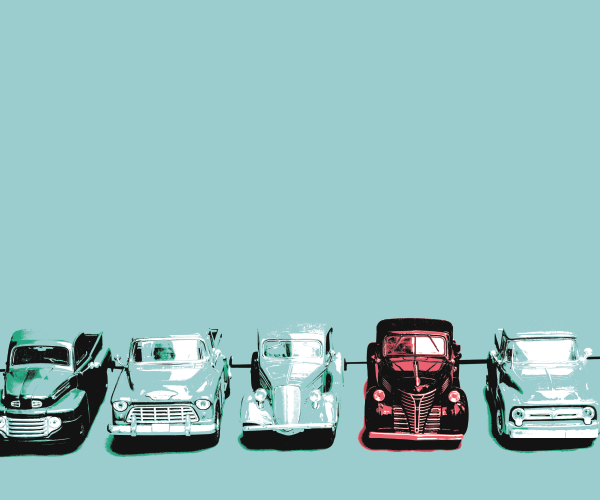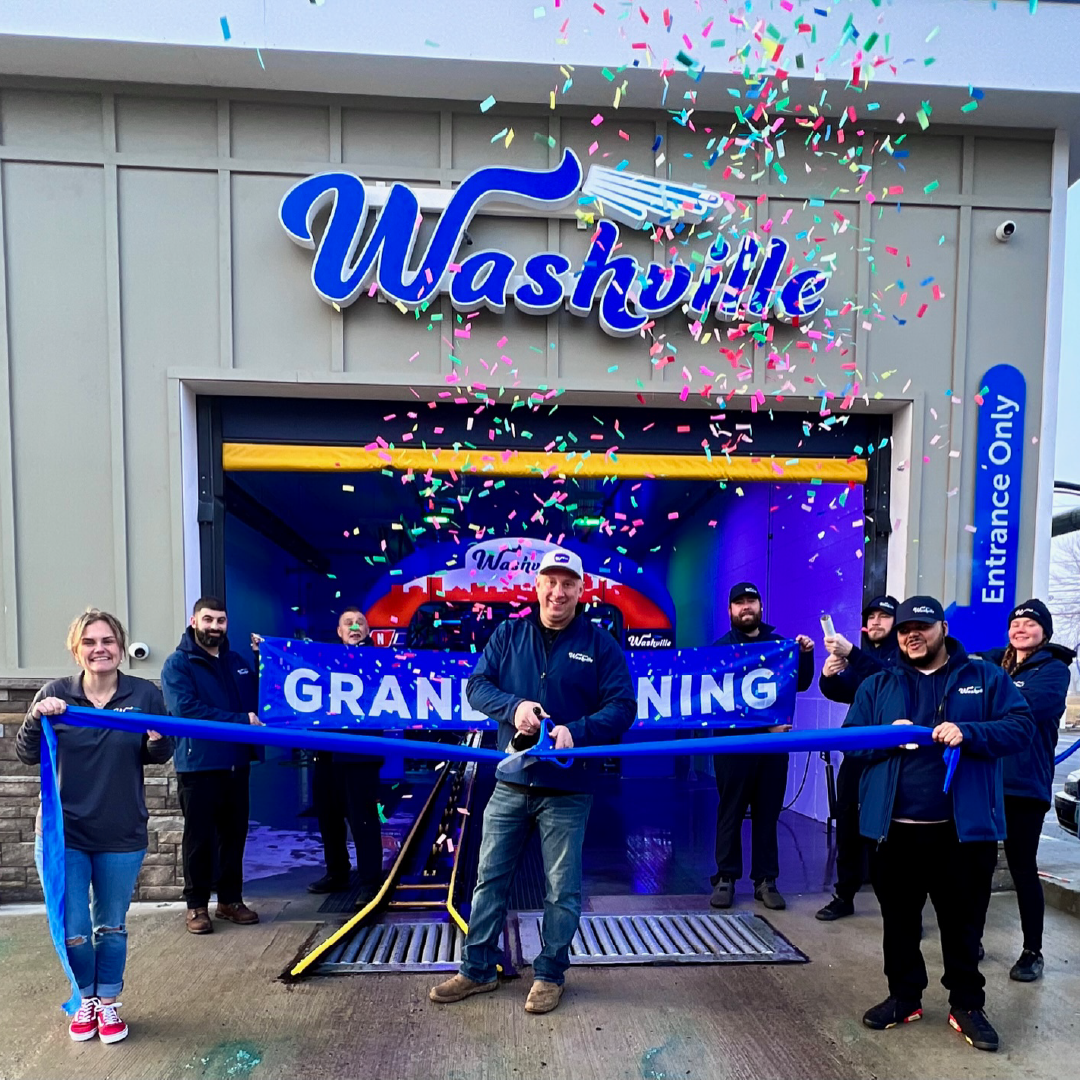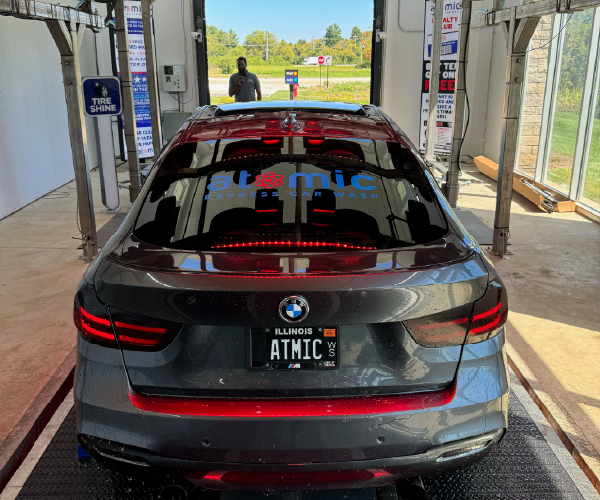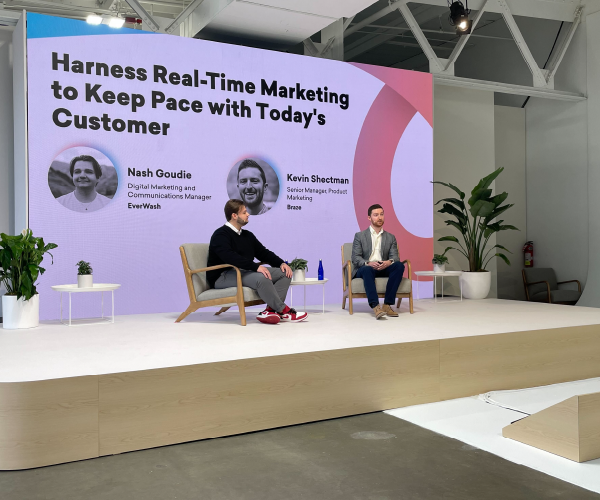
Thriving in Close Quarters
July 30, 2024
8 minute ReadMultiple wash models find success — despite being in close proximity — by targeting different consumer segments and differentiating themselves.
Corey Kennard has been managing car washes for almost three decades, so when he bought his first wash in November 2022, he knew he had the knowledge and experience to succeed. The loan officer at the bank, however, had a concern.
Wasn’t Kennard worried that a new tunnel wash was being built across the street from his in-bay automatic wash? Could the small town of Blountville, Tenn., really support multiple car washes?
Undeterred, Kennard signed the loan documents, bet on himself and is now reaping the rewards. Tri-Shine Car Wash, with one in-bay automatic and five self-service bays, is coming off a record year, and entering the summer, Kennard’s top concern wasn’t his newest competitor; it was ongoing roadwork near his entrance.
“That might affect me a little bit, so I’m hoping they get it done quickly,” he said. “The tunnel opened two months after I bought my wash, and I can’t tell whether it’s even affecting my figures. Have I lost customers to it? Probably, but the previous owner had his best year ever the year I bought it. I beat his figures last year, and I’m having a better year this year.”
In addition to his wash, Kennard manages four Wash Depot locations in northeastern Tennessee and said those in-bay automatics continue to grow revenue despite robust local competition. Several years ago, those locations upgraded their wash chemicals and equipment, allowing them to compete with tunnels on quality, if not speed, he said. Also, there's a different market for touchless washes, and his locations offer 24/7 convenience.
“We say, ‘Wash on your time.’ That’s our motto,” Kennard said. “Typically, a different clientele washes at touchless or soft-touch IBAs versus tunnels. A lot of people with high-dollar cars just don’t want anything to touch their vehicles. Other customers like going to a tunnel and getting a three-minute wash. But if you run a good touch-free car wash that’s getting the vehicle clean without any risk of damage, a lot of people would rather do that.”
Kennard said Tri-Shine and Wash Depot have built loyal customer bases by providing a good product and reliable customer service. The equipment is properly maintained, and he’s always on call, monitoring the locations by video.
Kennard’s experience has reinforced his original belief – that different car wash models can succeed despite operating in close proximity because they appeal to different customers.
“You’ve got to stay on top of your maintenance, put out a good product and give them a good show,” he said. “I’m offering great chemicals and on-call service. I can start bays and floor vacuums over the phone if they have a problem. It’s all about customer service. You can’t run the business as ‘passive income.’”

A winning formula
High-quality chemicals also have made a difference for Ohio operator Stuart Young, who opened Xenia Auto Spa in 2018 and added a second location in 2021. He said car counts at his IBAs have climbed 40% since he bought them, so while new tunnels have fueled the industry’s growth, “I think that us IBA guys are going to hang in here really tough.”
Interestingly, Young said high-volume tunnels in his area have helped him to improve his product and the amount and types of chemicals he uses, as he has made modifications based on what they have found works well. “It’s inspired me to improve my product, use less water and reduce the number of chemicals I use,” Young said. “Tunnels get to test things so much faster and more thoroughly, so the tunnel chains have actually been beneficial to me.”
Since tunnels typically wash many more cars than IBAs, their experimentation with new products, concentrations and sequencing yields faster results than IBA operators could achieve, Young said. Tunnel operators have about three minutes to put out a good product, so the best ones have optimized their processes, and IBA operators should take note of what they’re doing, he said.
“I spend zero dollars on advertising,” Young said. “I put those dollars into the chemicals because clean, shiny cars lead to more cars to clean through word of mouth. I feel that the only way for in-bay automatics to stay competitive is to put out a car that looks as good, if not better, than a tunnel in a touchless environment.
Also, with a top-tier wash priced at $18, Young said his IBAs appeal to cost-conscious consumers. Xenia has a rewards app, as well, through which customers can earn free washes over time, a program some customers prefer over unlimited wash programs that charge a monthly fee, he said.
That’s especially true for customers who have realized that quality ceramic products often allow cars to stay cleaner for longer, necessitating fewer washes, he said.
“I’m trying to give them an end product that they don’t need to wash as often,” Young said. “There’s always going to be a market for people who don’t want their car touched, and you can compete with a tunnel if you’re putting out a product that’s as good as the tunnel. If your product’s not as good as the tunnel next door, then you’re going to get clobbered.”
Prioritizing location
Jordan Rosner said he never intended to own car washes, but he attended a business auction eight years ago, saw an aging car wash with a great location and took the plunge. Liberty 24-7 Car Wash in Sykesville, Md., is still going strong today, and Rosner has since added a second location, Valley 24-7 Car Wash in Berkeley Springs, W.Va.
Both have in-bay automatics and self-service bays, and both were major fixer-uppers, said Rosner, treasurer of the Mid-Atlantic Carwash Association.
“The only things that are original in those car washes are the cinderblock walls,” Rosner said. “My business model is to find rundown car washes in very good locations and then totally renovate them, and that’s how I’ve been successful.”
Like other IBA operators, Rosner has experimented with his chemicals to match the quality of a tunnel wash. Even his lower-priced washes now feature premium products, with higher concentrations of the low-pH and high-pH presoaks and protective coatings such as ceramic or graphene. In light of the powerful dryers at the ends of tunnels, he’s also added more drying agent.
“Even if it costs me a little bit more, it produces a very good outcome,” Rosner said. “You want customers to tell their friends about you, and that’s how I get a lot of my business.”
Liberty has vied successfully with one tunnel wash about a mile away, and a second one is scheduled to open this summer across the street, Rosner said. While his competitors have unlimited wash plans, Rosner offers wash books, which allow customers to purchase a dozen washes for the price of 10 and share them with family members and friends. That flexibility appeals to a different consumer than the typical wash-club member, he said.
“I have a lot of customers who moved from a monthly program to wash books, and they love it,” Rosner said.
As the only touchless wash for many miles, Rosner said he feels well positioned to retain market share.
“I think too many people think that tunnels and in-bay automatics compete with one another, and they really don’t because most tunnels have price points that are much higher than mine,” he said. “Both models can thrive, and I don’t think we’re really competing in the same market. A tunnel may have much higher volumes and gross revenue, but my operating costs are lower, so I might make more profit.”
Finding a differentiator
The car wash industry’s sustained growth has led to the abandonment of the “three-mile rule,” a maxim advising operators not to open a new location within three miles of a similar wash, according to Nick Spallone, founder of the consulting firm Car Wash Pro Designers.
Now, his company sometimes will advise clients to open new locations near established competitors so long as they can claim a meaningful strategic advantage. If drivers have difficulty pulling into a car wash or the property is laid out poorly, causing anxiety for drivers maneuvering their cars, that might provide room for a new entrant.
New drivers, seniors and new-car owners, for example, may write off a car wash completely due to simple factors such as tight turns or narrow drive paths on the property, he said.
For some drivers, time is the precious commodity, so the way to win their business is to get them through the express tunnel as quickly as possible, Spallone said. Some customers may go to an express wash most of the time due to the convenience but periodically will visit a full-service wash for deep cleaning, interior cleaning and other services, he added.
Gas stations that offer car washes draw their own consumer segment and rarely take away from traditional operators, so they’re not a large factor in determining whether a market can support another wash location, Spallone said.
“You can strategically place yourself into saturated markets by offering things that other washes don’t and can’t, and you won’t really be taking from their base because it’s people that simply won’t go to the competition,” he said. “If you give customers an easy, convenient place to get into and out of, some people will go there just for that, even if the quality isn’t the same.”
Spallone said many drivers, especially those with high-end cars, seek out newer-looking car washes, even if a dated-looking property has strong customer-satisfaction levels. In a growing market, newness can be a strong advantage, he said.
“Optically, it will look new to the consumer, and people are already going to that area for a wash anyway,” Spallone said.
Similarly, offering touchless service is a way to appeal to customers with vehicles that shouldn’t be washed using friction or the owner just prefers a friction-free wash.
“Touchless and belt-conveyor washes are answering a demand, so we’ll build a touchless wash on top of a giant that’s doing everything right,” Spallone said. “Even if they’re killing it, we’ll get close to them because we’re offering something that the market is asking for and that that wash can’t provide. If you build those two models side by side, you will see a clear distinction of the clientele.”








